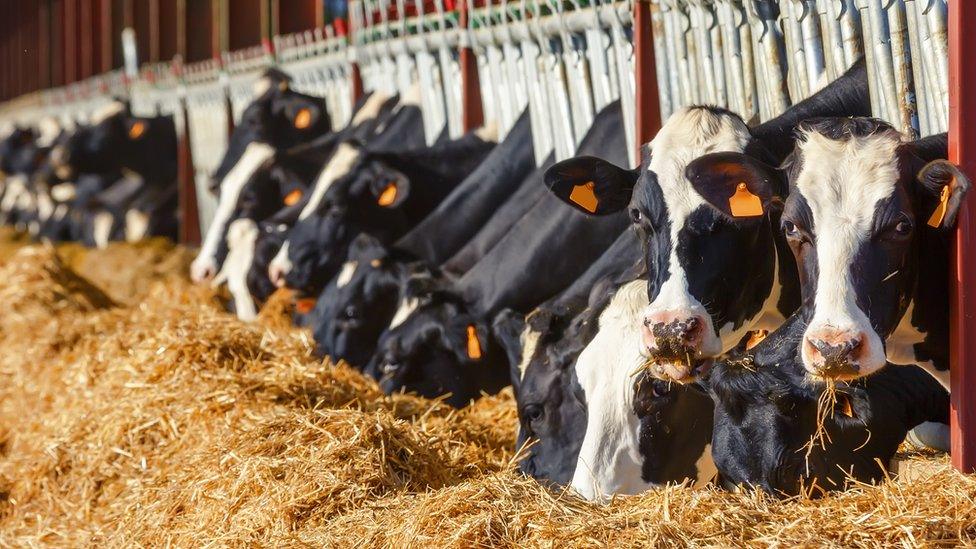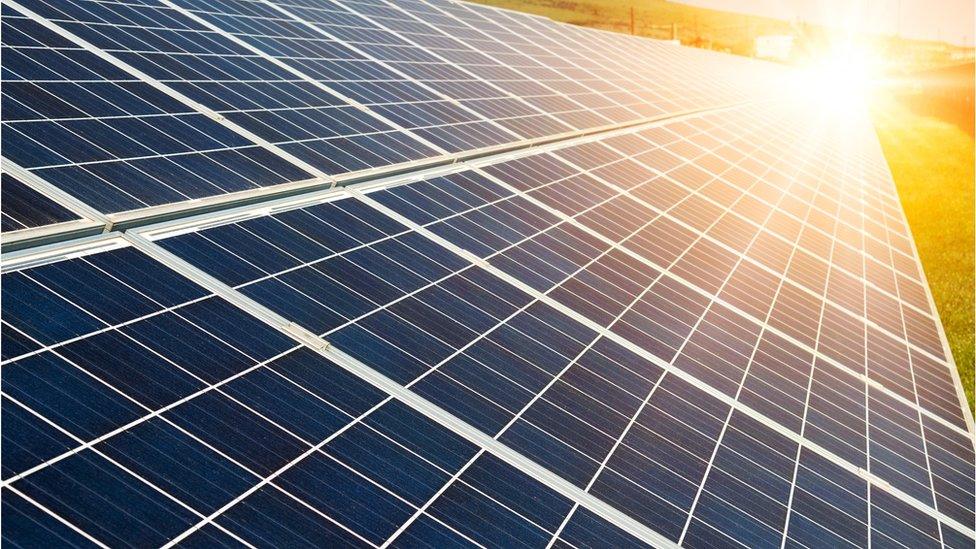Coronvairus: NI minds turn to long-term economy as lockdown eases
- Published

The reopening of the Northern Ireland economy continued this week with caravan parks the latest businesses to welcome back their customers.
A range of other sectors from cinemas to tattoo parlours were also given indicative reopening dates in July.
There are big short-term problems in the economy - redundancy notices are piling up in manufacturing, hospitality and aviation.
But thinking has also begun about the longer-term shape of the economy.
Agriculture and Environment Minister Edwin Poots devoted a speech to the concept of "green growth" - which is basically about embedding sustainable environmental principles in economic policy making.
Mr Poots described this as no less than a revolution.
"A revolution which - if embraced - will benefit our businesses, our people and our environment," he told the Northern Ireland Assembly.
He said change would be driven by the commitment of the UK government to achieve net zero-carbon emissions by 2050.
But he also tied it to individual experiences during lockdown, noting that for many people it was interaction with the natural environment that had sustained them during strange and difficult times.
And he said that lockdown has opened up the possibility of more sustainable ways of living and working.

Many people have been working from home due to the coronavirus pandemic
"The pandemic has demonstrated to us, unequivocally, that people can work from home.
"That's not going to mean that everyone is going to be working from home every day but people may only be coming into the office two or three days a week.
"We can be much more efficient in terms of transportation."
Carbon savings
That was echoed by Mr Poots' top official Denis McMahon when he gave evidence to a Stormont committee this week.
He cited statistics on carbon savings from having the bulk of his 3,000 staff work from home.
He said it was saving 55,000 commuter miles a day.
That had added up to two million commuter miles in the first 35 days of lockdown, or the equivalent of 445 tonnes of CO2.
It would take 40 years for 500 trees to absorb that amount of carbon, he told MLAs.

There have been warnings in recent years about high ammonia levels in Northern Ireland
Mr Poots also visited one of Northern Ireland's largest farm businesses, the Blakiston Houston Estate, to give an example of green growth.
"Sixty percent of the electricity used in the dairy is from renewables, wind turbines and solar panels," explained Jack Blakiston Houston.
"We collect water from roofs and we have a filtration system for dirty water."
The last time "growth" was mentioned in a Department of Agriculture and Environment strategy "green" seemed less important.
In 2013, it was Going for Growth - a plan to rapidly expand agricultural production in NI, particularly in pigs and poultry.
Environmentalists have long held it up as an example of an ill-thought through policy.
The agricultural sector expanded, but it also contributed significantly to Northern Ireland's issue with ammonia emission.
The ammonia situation is now acknowledged by the department as a "huge issue" and may shackle future agricultural expansion unless it can be addressed.
Perhaps lessons have been learned from that experience and the consequences that flowed from it.
But good intentions will have to be turned into policies.

Stormont faces challenges on expanding renewable sources of energy
One of the first challenges is for the Department for the Economy to design a new subsidy regime for renewable energy.
The last one expired in 2017 and, with Stormont suspended, there was nothing to replace it.
And, of course it was a botched green energy scheme, the Renewable Heat Incentive, which had led to Stormont's collapse so whatever subsidy scheme comes next will be intensely scrutinised.